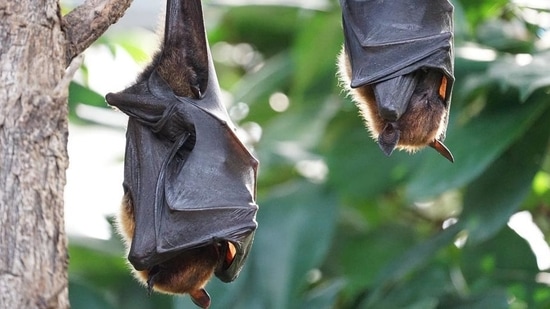Amid Delta variant spread, Nipah virus antibodies in bats concern experts
Nipah virus is on the watchlist of the World Health Organisation (WHO)'s top 10 pathogens list.
While the threat of the Delta Plus variant of coronavirus disease (Covid-19) looms large, scientists from the Pune-based National Institute of Virology (NIV) have found the deadly Nipah virus antibodies in two species of bats in Maharashtra for the first time, according to reports. The Nipah virus-carrying bats have found in Mahabaleshwar in Maharashtra, according to NIV scientists.

Nipah virus is on the watchlist of the World Health Organisation (WHO)'s top 10 pathogens list. First identified in Malayasia in 1998-99 during an encephalitis-like outbreak among pigs and pig-handlers, the outbreak of the virus has occurred in countries like Bangladesh, Malaysia, India, and Singapore.
Also read| Delta, Delta Plus: Which vaccine are effective against Covid-19 new variants
The study's lead investigator Dr Pragta Yadav said that none of the bat species in Maharashtra has earlier shown any exposure to the virus, according to media reports.
The death rate among the infected in documents outbreaks between 1998 to 2018 was 40 per cent to 70 per cent, according to the US Centre for Disease Control and Prevention (CDC).
India has seen four outbreaks of the virus infection so far. The first instance of the infection was reported in West Bengal's Siliguri in 2001, the second incident was reported from Bengal's Nadia in 2007. The third outbreak was reported in 2018 in Kerala's Kozhikode when 18 people died of the infection. Another wave of Nipah virus was seen in Kerala in 2019.
The NIV report also said that antibodies of Nipah virus were found in Dhubri district of Assam and Cooch Behar of West Bengal.
The viral infection does not have treatment currently and its limited to supportive care, including rest, hydration and treatment of symptoms, as per the CDC.
Symptoms from the viral infection usually occur in 4-14 days of exposure. CDC says that symptoms may include fever, headache, cough, sore throat, difficulty in breathing, vomiting, while severe symptoms may include disorientation, drowsiness, or confusion, seizures, coma and brain swelling (encephalitis).
Get Current Updates on India News, Lok Sabha election 2024 live, Election 2024 along with Latest News and Top Headlines from India and around the world.



